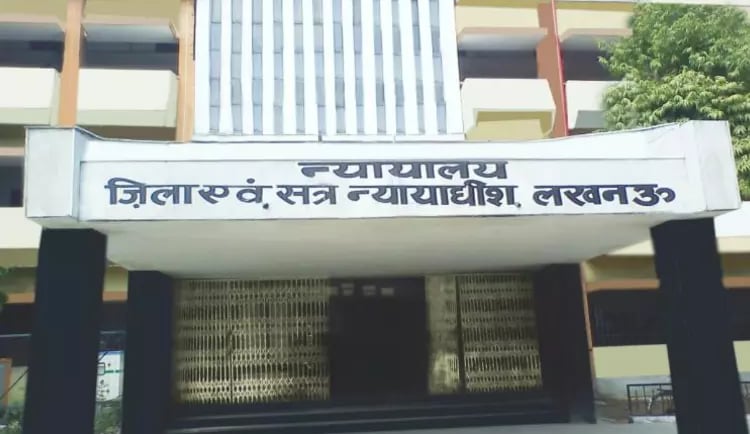False Gang-Rape FIR in Lucknow: Woman Gets 7.5 Years Jail—A Wake-Up Call for Judicial Reform
In a groundbreaking judgment, a special court in Lucknow, Uttar Pradesh, sentenced a 24-year-old woman, Rekha Devi, to 7.5 years in prison for filing a false gang-rape FIR and misusing the SC/ST Act. The ruling has stirred conversations across India, especially regarding the misuse of gender- and caste-based protective laws. This case not only highlights the devastating consequences of false accusations on the accused but also underlines the urgent need for systemic legal reforms.
ADV SACHIN GUPTA | PARTNER | ALTIUS ASTRA ATTORNEY
6/19/20253 min read


False Gang-Rape FIR in Lucknow: Woman Gets 7.5 Years Jail—A Wake-Up Call for Judicial Reform
Introduction
In a groundbreaking judgment, a special court in Lucknow, Uttar Pradesh, sentenced a 24-year-old woman, Rekha Devi, to 7.5 years in prison for filing a false gang-rape FIR and misusing the SC/ST Act. The ruling has stirred conversations across India, especially regarding the misuse of gender- and caste-based protective laws. This case not only highlights the devastating consequences of false accusations on the accused but also underlines the urgent need for systemic legal reforms.
Case Background
Rekha Devi, a young woman from Lucknow, had lodged an FIR accusing two men—Rajesh and BK alias Bhupendra—of gang-rape under the Indian Penal Code (IPC) and offences under the SC/ST Act. At first glance, the case seemed serious and was treated accordingly by law enforcement.
The complaint accused both men of gang-raping her—a charge that naturally drew severe attention due to its grave nature and social implications. However, as the investigation unfolded, shocking truths began to surface.
What emerged was a personal vendetta. Rekha allegedly had an illicit relationship with Rajesh, and the FIR was filed not for justice but revenge against Rajesh’s wife. Her objective? To humiliate and harass Rajesh and drag him down socially and emotionally.
The Court found Rekha Devi guilty under:
Section 182 IPC: Giving false information to a public servant.
Section 211 IPC: Falsely charging someone with a criminal offence.
She had also invoked provisions under the SC/ST (Prevention of Atrocities) Act, which made the case even more sensitive. However, the court ruled that this, too, was a misuse of a special law meant to protect the vulnerable.
Special Judge Vivekanand Sharan Tripathi remarked that the accused were "the luckiest false gangrape case survivors" and condemned Rekha’s actions as character assassination. The judge emphasised the lasting impact of false accusations on reputations and mental well-being.
Rekha Devi was sentenced to 7.5 years in prison and fined ₹2.1 lakh for her deliberate misuse of law and attempt to destroy innocent lives.
The Court didn’t mince words. It emphasised the irreparable damage false allegations cause:
“Being falsely accused of rape leaves a permanent stain on a man’s dignity and damages his self-esteem, mental health, and social standing.”
The Court lauded the investigating officer for conducting a fair, unbiased, and thorough investigation that helped uncover the truth and rescue the innocent from a web of deceit.
The falsely accused men spent three months in jail, enduring humiliation and emotional torture. Society often doesn’t wait for the verdict—it judges instantly, and the stigma sticks.
The Court quoted 'Shri Ramcharitmanas' and introduced the term ‘Ajasi’, which symbolises social death—a state where a person is so discredited that even if alive, they are treated as dead by society.
The verdict elaborated that reputation, once lost, cannot be restored. It’s more lethal than any punishment. A bad name, the court said, is worse than being a bad person.
BK alias Bhupendra, passed away at just 29 years of age during the trial. The Court, while acknowledging his death, raised a profound question:
Was his demise somehow linked to the mental and emotional trauma he endured due to the false charges?
Though unprovable, the Judge noted that deep introspection is necessary. The legal ecosystem must assess how psychological burdens from such cases affect the wrongly accused.
Laws like the POCSO Act, Dowry Act, and SC/ST Act were created with noble intentions—but misuse has grown alarmingly. False FIRs damage the very credibility of these laws and divert resources from genuine victims.
The Court recommended:
Mentioning prior FIRs in new complaints.
AI-based systems to track such filings.
Compensation only after charge sheet, not just on FIR.
These reforms aim to curb the rising trend of misuse and protect innocent citizens from legal harassment.
This case proved that meticulous police work is essential. The investigating officer’s diligence prevented a gross miscarriage of justice.
Both police and judicial officers need continuous training to differentiate between genuine and fabricated cases, especially when such sensitive social laws are involved.
Using the legal system for personal revenge is not just unethical—it’s criminal. It endangers lives, wastes resources, and shakes public trust in the judiciary.
This case is a landmark because it sets a precedent- False accusers can and will be punished. That’s how trust in the justice system is rebuilt.
This verdict is more than just punishment for Rekha Devi—it’s a strong message to society. The justice system will not tolerate misuse, especially when it involves grave allegations like rape. At the same time, it emphasizes the importance of truth, accountability, and integrity in using the law. As India advances, so must its legal systems—with mechanisms that punish both the guilty and the deceitful.
Altius Astra Attorneys
A premier law firm based in Delhi, India, offering legal representation across various practice areas for citizens rights and interests.
© 2025. Altius Astra Attorneys. All rights reserved.
Contact Us
📞 9899290789, 9818786756
📧 contact@altiusastra.com
3C-ED Block, Madhuban Chowk, Pitampura, Delhi-110034
DISCLAIMER
